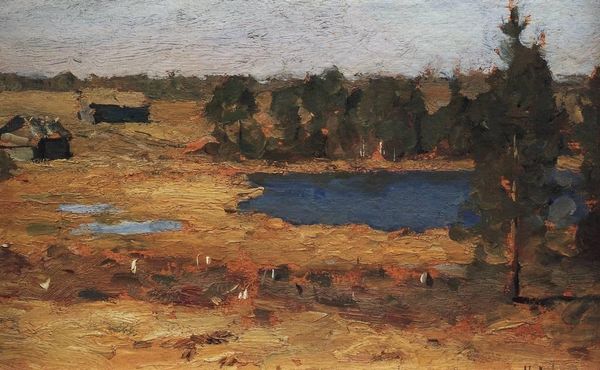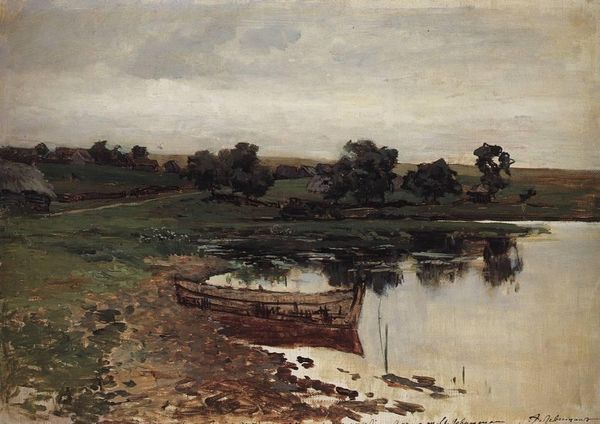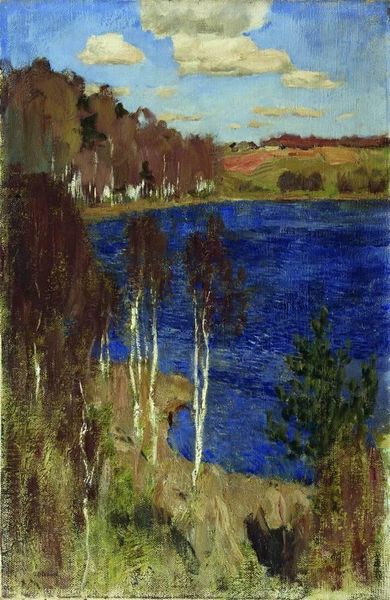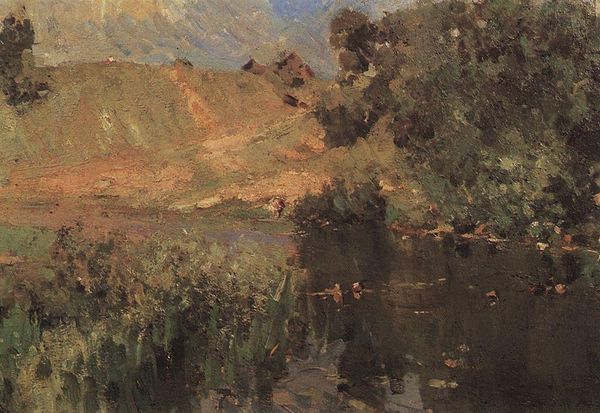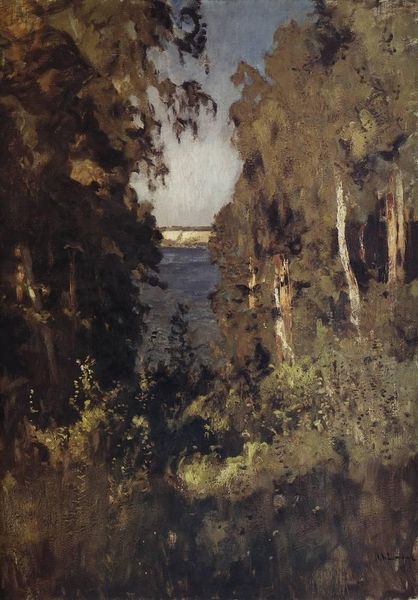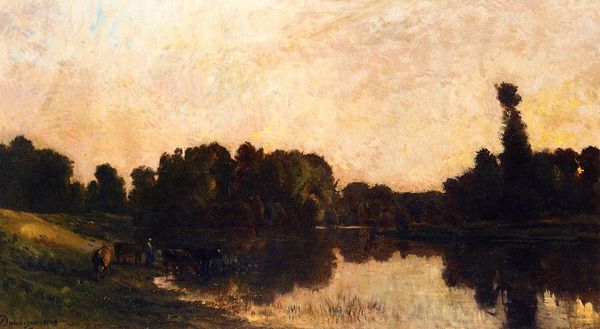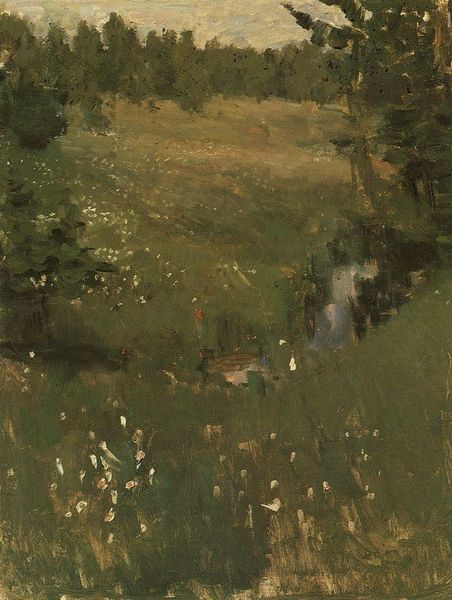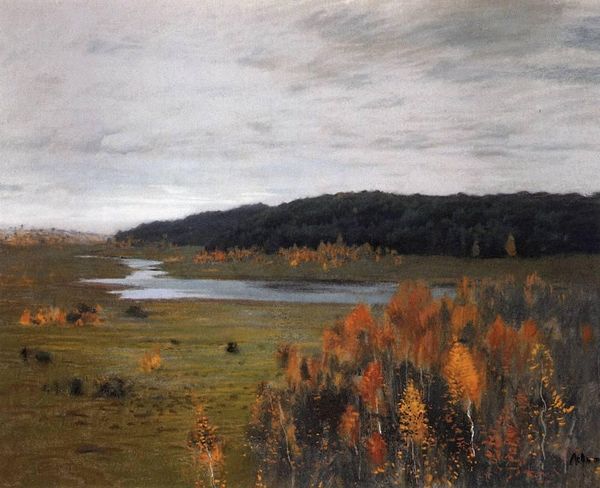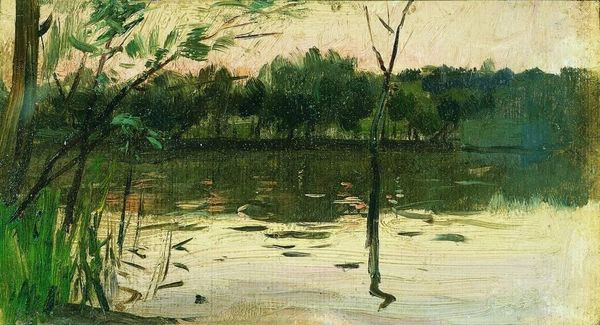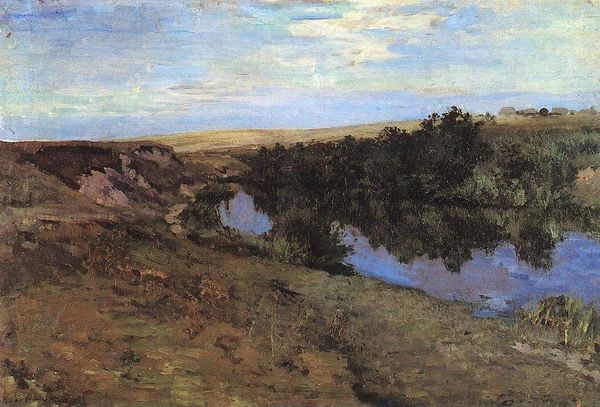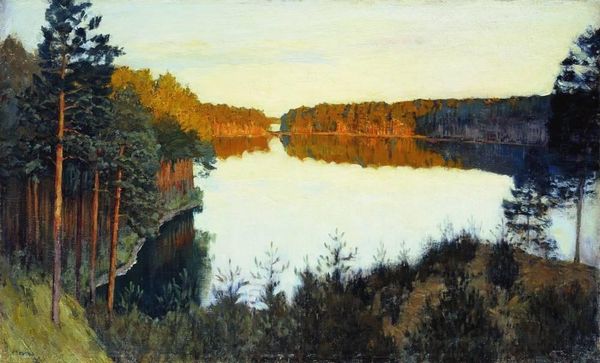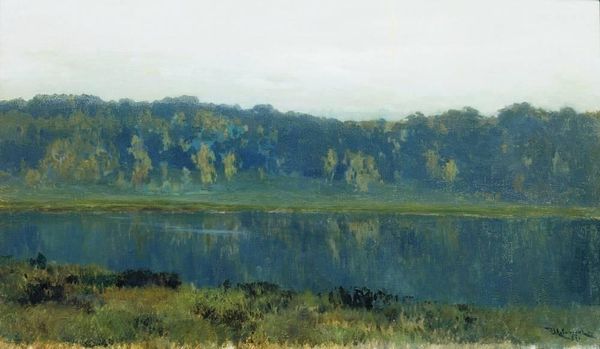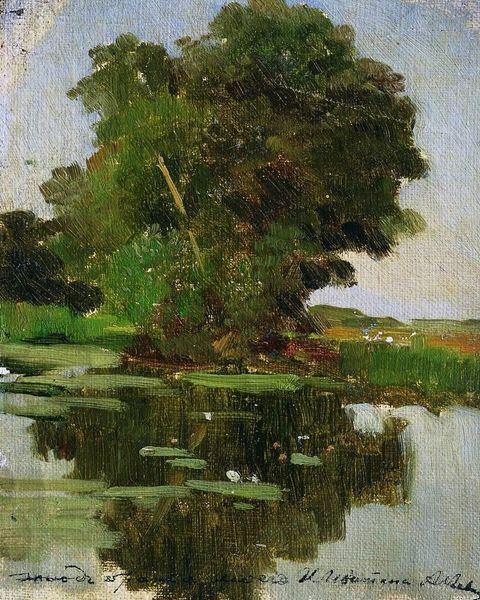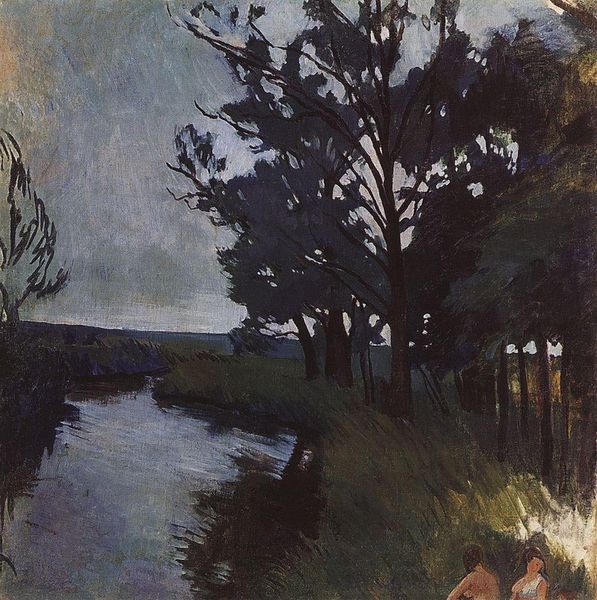
Dimensions: 16.7 x 28.7 cm
Copyright: Public domain
Curator: Looking at Isaac Levitan’s oil study "Sunset over a Forest Lake" from 1895, I’m immediately struck by how still and reflective everything appears. There's a quiet solemnity. What’s your take? Editor: It's remarkable how he uses muted tones, primarily browns and greys. One might even say monochrome. The materiality of the paint, however, stands out—you can almost feel the impasto and observe the direction of his brushstrokes. Curator: Yes, while categorized within impressionism, you can sense the lingering influence of romanticism in the melancholic atmosphere. It begs the question, how did Levitan navigate the rapidly shifting art world? And who consumed paintings like these? Editor: Well, Levitan and his peers would often work 'en plein air,' capturing immediate sensory experiences and subtle light variations. Oil paint provided flexibility, and the study format suggests efficiency within the pressures of production and consumption that came with exhibiting art during that era. It looks quickly and expertly rendered. Curator: That makes sense. Think of the evolving role of landscape painting within the broader cultural landscape—it moved from backdrop to main subject. It becomes an articulation of national identity, shaped by historical context and patronage, certainly. Russia was attempting to position itself on the global stage. Editor: I also think about access—the burgeoning art market allowed middle class patrons opportunities for display. How did these images function in private homes and galleries? Were these studies eventually enlarged into larger, even more ambitious canvases intended for elite consumption, or did they find a place and value of their own as quickly created records of place and light? Curator: It seems this study holds multiple interpretations depending on one’s point of view. Perhaps what’s crucial here is to observe both what Levitan created, and how those creations participated in culture building. Editor: Agreed. It really does prompt a reflection on the labour behind landscape artistry, too. It is far more complex than merely rendering a scene, or a view!
Comments
No comments
Be the first to comment and join the conversation on the ultimate creative platform.
